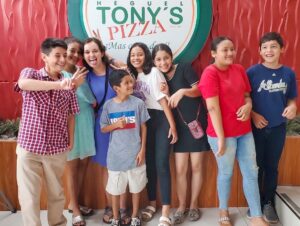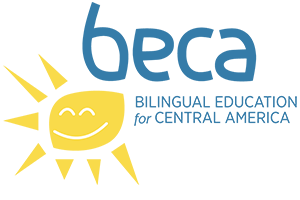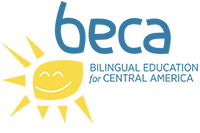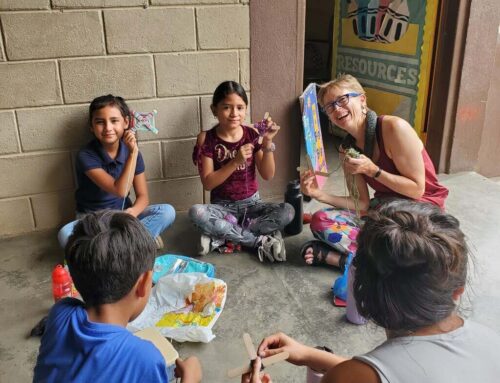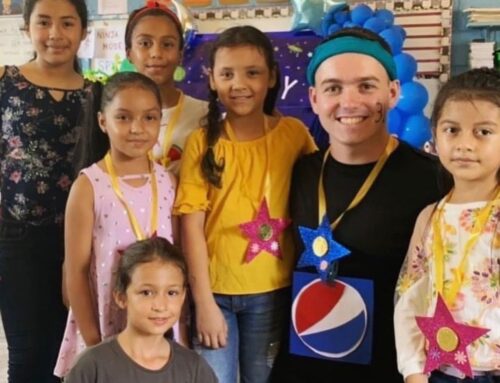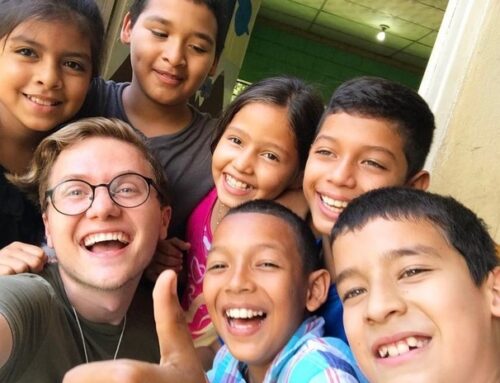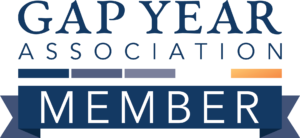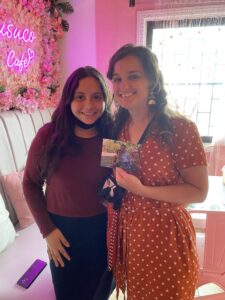
I was 22 the first time I landed in Honduras. I had just graduated from college, and teaching for BECA was my first full-time job that wasn’t on-campus or at a fast food restaurant. Throughout the month of July, I tried to prepare myself for the first day of school through BECA’s Summer Training Institute. I planned units, sorted math manipulatives, and created posters (and laboriously “laminated” them using contact paper), but nothing could have truly prepared me for the first day of preschool (which is somewhat confusingly called kinder in Honduras) with my 22 students who had never been to school before, and on top of that, they’re teacher was a gringa who only spoke to them in English.
I remember a lot of tears keeping the door shut since one student kept trying to run away, out of the classroom, through the portón, and to home. I will never forget one student, Daniela Santos, ripping out the gold hoop earrings her mom had put on her for her first day of school and throwing them underneath the furniture in frustration. When her mom came to pick her up that first day, we searched everywhere, but we never found those earrings. Nine years later, I remember all those things – Norma quietly crying throughout the day, Jenny completely at ease, Marcos Antonio asking every few minutes, “¿Ya nos vamos?”– but I don’t remember a single thing I taught.
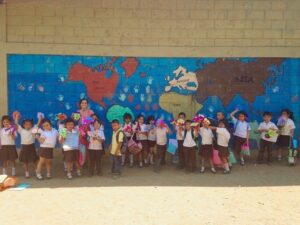
I stayed in that classroom with those same kids, plus three new students who joined us for Prepa (kindergarten), for two years. I watched them grow and learn in so many areas, and I never got over hearing them surprise me with their growing English skills because I always remembered where they started. One day, out of the blue, Cesia started responding to all questions with, “Yeah,” which I’m fairly certain I had never said in class. We learned about colors, all the letters of the alphabet, science, and how to count to 20. We also took time each week to do a social-emotional circle and check in our classroom community. I’m still a kindergarten teacher to this day, and I love seeing the progress of how much students learn throughout the year and comparing those first few weeks with the end of the year.
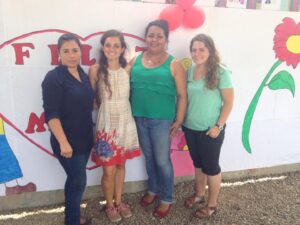
One of BECA’s mottos is “We teach the kids. They teach us.” That was my experience and continues to be every time I visit Cofradia. My students taught me a lot of new Spanish vocabulary, like “I have to pee now” and “I just peed my pants.” Their families shared their culture with me every time I visited their houses, and I learned how to make tortillas (though I never mastered the skill), how to tell when a plantain is verde or maduro, and how to charge my phone with saldo. From my Honduran coworkers, I learned the history of Honduras, the important figures on lempira bills, and most of the words of the national anthem. I also learned a lot about myself: how small I am in the world, that I need alone time to recharge (especially after working all day and cooking, eating, and socializing with the same 25 people everyday). I learned that my government’s involvement with other countries is often negative. I learned that I do actually like beans and a vegetable I’ve only ever eaten in Honduras called pataste. I learned how to feel hopeful when things in the world feel bleak.
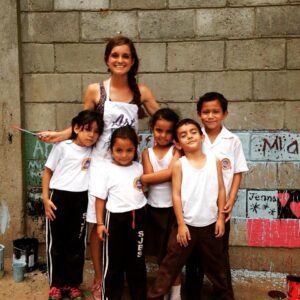
Whenever I visit Honduras now and a family offers me a giant home cooked meal or insists on taking me out to San Pedro for pizza, I always try to push back, help out, or chip in, but I’m always met with something like, “We don’t mind, you’ve done so much for our kids.” But I really think the kids and their families have done so much more for me. Many of the things in my life now I know I owe to them. The experiences in Honduras I wrote about in my personal statement helped me get into grad school after leaving in 2015. The Spanish fluency I developed after being immersed for two years is at the top of my resume. In job interviews, I always bring up my experience in Honduras, the things I learned, and the skills I developed. I got hired at my current job after getting connected with another BECA teacher, Nikki, who worked there, and the passion I feel for working in early childhood education was born and rooted during my time at San Jeronimo Bilingual School. I owe so much to those I met in Honduras, especially the students and their families who invited me over for birthday parties, let me crash on their hammock, or took me to a weekend in the mountains. It’s something for which I’m eternally grateful and know that I’ll never be able to adequately express how much it means to me.
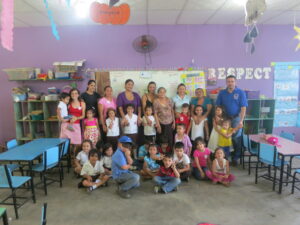
Before leaving Honduras in 2015, I promised myself and my students that I’d visit at least once a year, every year, until they graduated from SJBS. Selfishly, I didn’t want them to forget me by the time their 9th grade clausura came around, but I also wanted to show them and their families that I wasn’t going to forget them either. I wanted to show them that they continue to be a part of my life and that my relationships with them are so valuable to me. I kept my promise to return every year through 2020, and then I wasn’t able to visit again until this summer 2022. During the two years that I didn’t see them, my former kinder and prepa babies turned into teenagers with mustaches, crushes, and obsessions with BTS. But their personalities stayed the same, and the time I spent hanging out with them at Tony’s Pizza and Cafe Cusuco (a place I wish we had when I lived in Cofradia!) felt just the same as eating baleadas together during morning recess or watercoloring during art class while Prince Royce or Frozen played in the background. Those kids will always be my babies, no matter how grandecito they get. 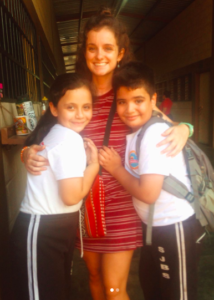
Even though everyone claimed to have no memories of Kinder or Prepa, aside from Cesia consistently bringing up the one time I had dismissal in the classroom because Prepa was too chatty to go to the auditorium, the memories I have of those two years haven’t faded. Reminiscing over old pictures on my phone together, I still distinctly remember the day Salomon painted his hand purple and then put it right on top of his face. I still remember Julio’s pet rock, aptly named Rocky. I will always remember the two months Daniela pretended to be a dog and responded to everything with barks. And now I have new memories to hold on to and treasure, like Julio asking me, “¿How do you say cringe in English?” or seeing Jaime for the first time since 2015 and instantly recognizing him across the parque.
On my resume or in job interviews or when people ask me how I learned Spanish, I respond that I taught in Honduras for two years. That’s true, but not the whole picture. For two years I learned in Honduras and thanks to the community of people I love that still live there, I continue to learn each and every time I get to see them. 